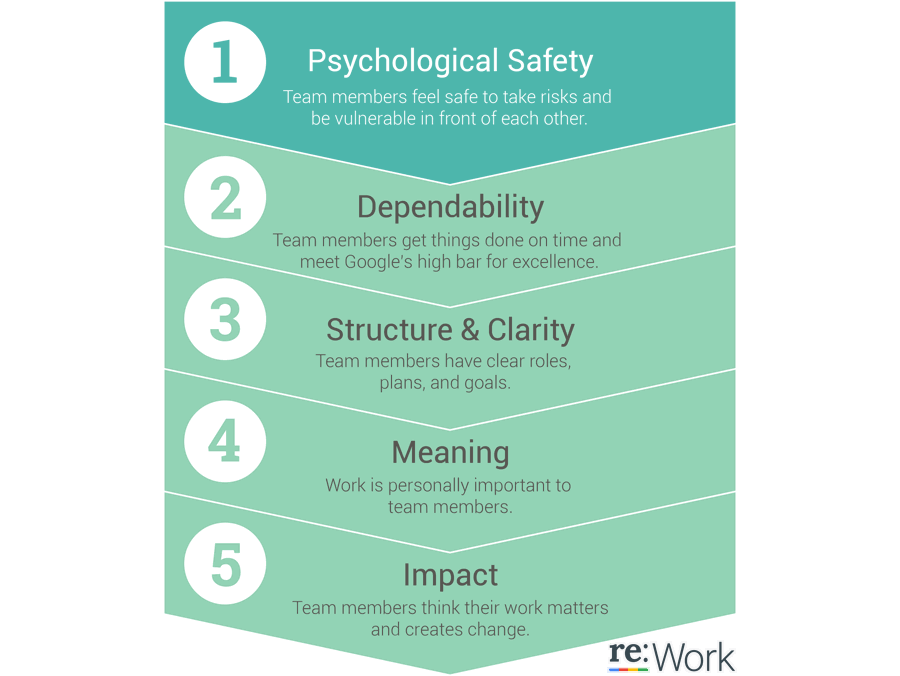The Surprising Finding: It Wasn’t About Who, But How
Project Aristotle revealed that the composition of a team (e.g. seniority, education, background) mattered far less than how the team worked together.
And the single most important dynamic?
Psychological safety - the belief that team members feel safe to take interpersonal risks, speak up, admit mistakes, and challenge ideas without fear of embarrassment or punishment.

Why Psychological Safety Matters
Teams with high psychological safety are more likely to:
-
Share ideas freely
-
Acknowledge mistakes
-
Learn from each other
-
Take smart risks
-
Adapt quickly
In contrast, when psychological safety is low, teams tend to stay silent - even when they see problems or have valuable input.
This aligns closely with the work of Harvard Business School professor Amy C. Edmondson, whose academic research laid the foundation for understanding psychological safety in teams.
Connecting Project Aristotle to Our Work
At The Fearless Organization Scan, we build on this research to offer validated scans that help organizations understand how psychological safety is experienced in real time - across teams, roles, and levels.
Our tools help turn the insights from studies like Project Aristotle into actionable, measurable improvements.
Curious how psychological safety shows up in your own organization?
Measure the experienced level of psychological safety across teams with our validated, anonymous scan - and receive a custom report with practical insights.